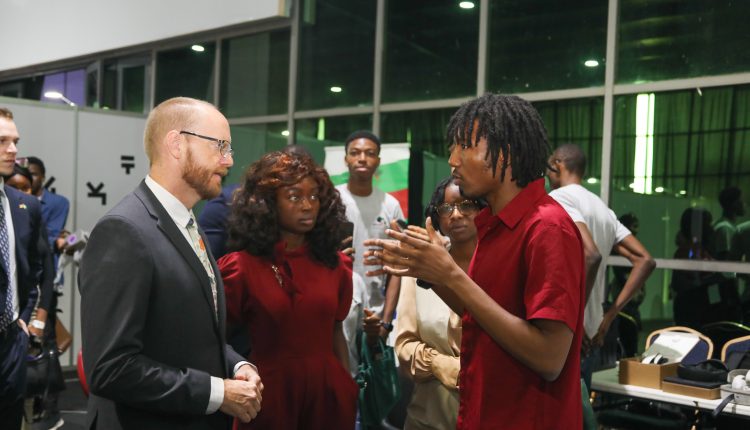Nigeria-US bilateral trade hits $10.6bn in 2022—Stevens
Maureen Aguta
Nigeria remains Africa’s largest economy and is the United States’ second-largest trading partner in Africa with two-way trade exceeding $10.6 billion in 2022.
According the U.S. Consul General in Nigeria, Will Stevens, the United States is proud to be one of the largest foreign investors in Nigeria with Foreign Direct Investment (FDI) totaling $5.6 billion in 2022. This is even as there are over 80 U.S. companies operating in Nigeria, in manufacturing, fast-moving consumer goods, pharmaceuticals, technology, etc. These companies according to Stevens collectively pay billions of naira in taxes, create thousands of direct and indirect jobs, and directly support various socioeconomic programmes that improve the lives of Nigerians.
Will Stevens, who disclosed this in his keynote address at the recent Omniverse Summit in Lagos stressed the commitment of the United States of America to supporting Nigeria and Africa on its journey to prosperity “as we believe that a strong and prosperous Africa is good for the United States, and good for the world.”
He noted that no African nation is having a bigger impact on the evolving digital transformation than Nigeria. “As Africa’s largest economy, largest democracy and number one destination for venture capital – Nigeria is driving innovation innovative creators are reinforcing my deeply held belief that African solutions and African voices are critical and central to resolving the problems of the 21st century and beyond.
“The world is changing at an unprecedented pace, fueled by the relentless innovation from an increasingly interconnected world. In the past decade, global internet traffic has grown by 700 per cent, and mobile phone users have surpassed 6.6 billion. This increased connectivity creates boundless potential for cross-border collaboration – creating a global village where ideas can spark across oceans, and innovations can blossom through collective efforts.
“Imagine a world where researchers from across continents collaborate on groundbreaking medical discoveries, where engineers work together to tackle climate change, and where entrepreneurs share ideas and resources to build a more sustainable future. This is a present that we are already beginning to experience and a future that I am certain will mean a better world for our children and our children’s children. Together, we are using the latest technological innovations to address some of the world’s most pressing challenges in the areas of climate change, education, healthcare, agriculture, and other vital areas of development and economic growth,” Stevens said.
He, however, noted that building these bridges requires more than just technological prowess, saying we must overcome challenges like cultural and linguistic barriers, unequal access to resources, and cybersecurity concerns. “These challenges are not insurmountable. By embracing inclusivity, bringing capital to markets that need infrastructure investment, and developing robust cybersecurity measures, we can pave the way for fruitful international partnerships.
“Together, I see that some of these challenges are already being addressed. U.S. venture capital firms have invested heavily in African tech startups with over 60 and 40 per cent of venture capital funding in Nigeria and Africa respectively coming from the United States. Up to 60 per cent of African startups are incorporated in the United States – this figure is 80 per cent when considering Nigeria alone. In 2021, African startups raised $4.8 billion; this translates to an average of over $1 million every 2 hours! Despite the global downturn in VC funding, the United States still accounted for about 40 per cent of the $3.4 billion raised by African startups in 2022.”
The Stevens emphasized the need for collaboration, saying it is not a zero-sum game; but a win-win proposition. “By working together, sharing knowledge, and pooling resources, we can overcome any obstacle and achieve the seemingly impossible. Let us, therefore, leverage this opportunity to forge lasting partnerships, break down barriers, and use technology not just to connect, but to create a future where innovation flourishes for the betterment of our interconnected world. Let us continue to build bridges, not walls,” he reiterated.


